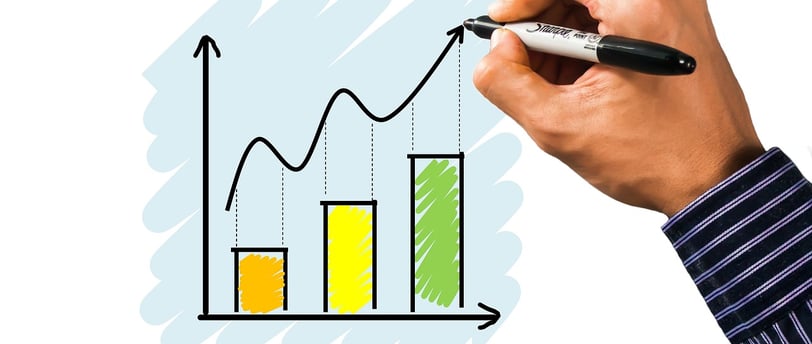Windway Logistics | Logistics and Transportation Solutions
How to Use Predictive Analytics to Improve Supply Chain Efficiency
Learn how predictive analytics can help you anticipate demand, optimize routes, and improve supply chain efficiency.
9/20/20244 min read


Introduction
In the rapidly changing world of logistics, companies are increasingly turning to data-driven technologies to enhance their operations. One key innovation in this area is predictive analytics, which is transforming the way logistics experts handle supply chain forecasting and demand prediction. Through the use of predictive analytics, businesses can better predict trends, streamline their processes, and ultimately boost the efficiency of their supply chains.
1. What is Predictive Analytics in Logistics?
Predictive analytics is the process of using historical data, machine learning algorithms, and statistical models to forecast future outcomes. In the logistics sector, this technology aids companies in predicting demand, optimizing inventory, reducing shipping delays, and managing resources more effectively. By leveraging vast amounts of supply chain data, businesses can gain valuable insights and make informed decisions to prevent potential disruptions.
Key Components of Predictive Analytics:
- Data collection: Gathering information from various sources like sales records, market trends, and consumer behavior.
- Statistical modeling: Employing algorithms and models to identify patterns and predict future demand.
- Machine learning: Enhancing predictions by allowing systems to learn from new data.
2. Improving Supply Chain Forecasting with Predictive Analytics
Accurate forecasting of supply chains is essential for maintaining the balance between supply and demand. Predictive analytics assists businesses in forecasting future market trends by examining historical data and identifying patterns. This enables logistics managers to foresee changes in demand, ensuring they can plan inventory, production, and transportation more effectively.
Benefits of Predictive Analytics in Supply Chain Forecasting:
- Reduced stockouts: By forecasting future demand, businesses can avoid running out of stock and ensure products are available when customers require them.
- Minimized excess inventory: Companies can avoid overstocking, which reduces storage costs and minimizes waste.
- Enhanced demand planning: Predictive models offer more precise demand forecasts, facilitating better planning for production and supply chain management.
3. Demand Prediction: A Key to Logistics Efficiency
One of the most significant uses of predictive analytics in logistics is demand prediction. By analyzing data from sales trends, consumer behavior, and market conditions, companies can better anticipate customer needs. This allows logistics companies to plan for sudden increases in demand, adjust inventory levels, and ensure deliveries are made on time.
How Predictive Analytics Enhances Demand Prediction:
- Analysis of customer behavior: Predictive models look at purchasing patterns to forecast demand, helping businesses stock the appropriate products at the right time.
- Recognition of seasonal trends: By identifying seasonal changes, companies can prepare for demand spikes or lulls.
- Awareness of market shifts: Predictive analytics can signal potential changes in market conditions, enabling businesses to respond swiftly.
4. Optimizing Inventory Management
Inventory management is a critical component of any supply chain. Predictive analytics helps logistics companies maintain optimal inventory levels by analyzing data to anticipate demand and adjust stock accordingly. This leads to improved inventory turnover rates, lower storage costs, and reduced risk of excess or obsolete stock.
Key Benefits of Predictive Inventory Management:
- Demand alignment: By predicting demand more accurately, businesses can keep inventory levels aligned with customer needs, avoiding both shortages and overstock.
- Reduced holding costs: Predictive analytics helps minimize the need for excessive stock, reducing warehousing and holding expenses.
- Faster response times: When companies have the right inventory on hand, they can respond to customer orders more quickly and efficiently.
5. Improving Transportation and Delivery Efficiency
In logistics, transportation costs are often one of the largest expenses. Predictive analytics logistics can optimize transportation routes, improve delivery times, and reduce shipping costs. By forecasting potential delays due to traffic, weather, or other disruptions, logistics companies can proactively adjust their routes and schedules to avoid costly delays.
How Predictive Analytics Enhances Delivery Operations:
- Optimized routing: Predictive models analyze real-time data to suggest the most efficient delivery routes, reducing fuel costs and transit times.
- Preventing delays: By predicting potential disruptions, such as traffic jams or weather conditions, logistics teams can adjust their routes to prevent delays.
- Cost reduction: More efficient routes and better planning lead to lower transportation costs and higher profitability.
6. Reducing Supply Chain Disruptions
Unforeseen disruptions, such as natural disasters, strikes, or supply shortages, can have a significant impact on the supply chain. Predictive analytics can help businesses anticipate these disruptions by analyzing historical data and identifying patterns that may signal potential issues. By forecasting risks, companies can develop contingency plans and respond more quickly when disruptions occur.
How Predictive Analytics Helps Mitigate Supply Chain Risks:
- Early risk detection: Predictive models can identify risks before they escalate, allowing businesses to take preventive action.
- Faster response times: Companies can use predictive insights to respond quickly to disruptions, minimizing the impact on the supply chain.
- Resilient operations: By anticipating risks and planning ahead, businesses can build more resilient supply chains that are better prepared for unforeseen challenges.
7. Enhancing Customer Satisfaction
In today's competitive market, customer satisfaction is paramount. Predictive analytics helps businesses meet customer expectations by ensuring that products are delivered on time and in the right quantities. By predicting demand more accurately, companies can avoid stockouts and delays, leading to better customer experiences.
How Predictive Analytics Enhances Customer Service:
- Accurate delivery estimates: Predictive models can provide customers with more accurate delivery estimates, improving transparency and trust.
- Reduced delays: By anticipating disruptions, companies can proactively manage potential delays and keep customers informed.
- Better product availability: Accurate demand forecasts ensure that products are always available when customers need them, increasing satisfaction.
8. Real-Time Decision Making with Predictive Analytics
One of the biggest advantages of predictive analytics is its ability to support real-time decision-making. Logistics companies can use predictive models to monitor supply chain operations in real time and make data-driven decisions on the fly. This agility helps businesses respond quickly to changes in demand, disruptions, and other variables, improving overall supply chain efficiency.
Benefits of Real-Time Predictive Analytics:
- Dynamic adjustments: Businesses can adjust inventory levels, transportation routes, and staffing based on real-time data, ensuring maximum efficiency.
- Proactive problem-solving: Predictive analytics helps businesses identify potential issues before they occur, allowing for proactive problem-solving.
- Increased flexibility: With real-time insights, logistics companies can be more flexible and responsive, improving their ability to meet customer demands.
Conclusion
Incorporating predictive analytics into your logistics operations offers significant benefits, from improved supply chain forecasting to better demand prediction and more efficient inventory management. By leveraging data-driven insights, businesses can reduce costs, enhance customer satisfaction, and minimize disruptions in the supply chain. As technology continues to evolve, companies that adopt predictive analytics logistics will be better positioned to stay competitive and meet the ever-growing demands of the global market.
Your One-Stop Shop for Logistics Solutions.
Contact
Follow
Support@windwaycentralogistics.com
+2347069986074
© 2024. All rights reserved.
+2347042141892
+233540806857
* Badagry expressway, Alafia Bus stop, behind Oando filling station( Bencord Warehouse),Lagos, Nigeria.
* Atiku Abubakar Hall, Balogun Trade Fair market, Lagos, Nigeria
* Abossey-Okai Mortuary Road, Opposite the Central Mosque, Ghana.


